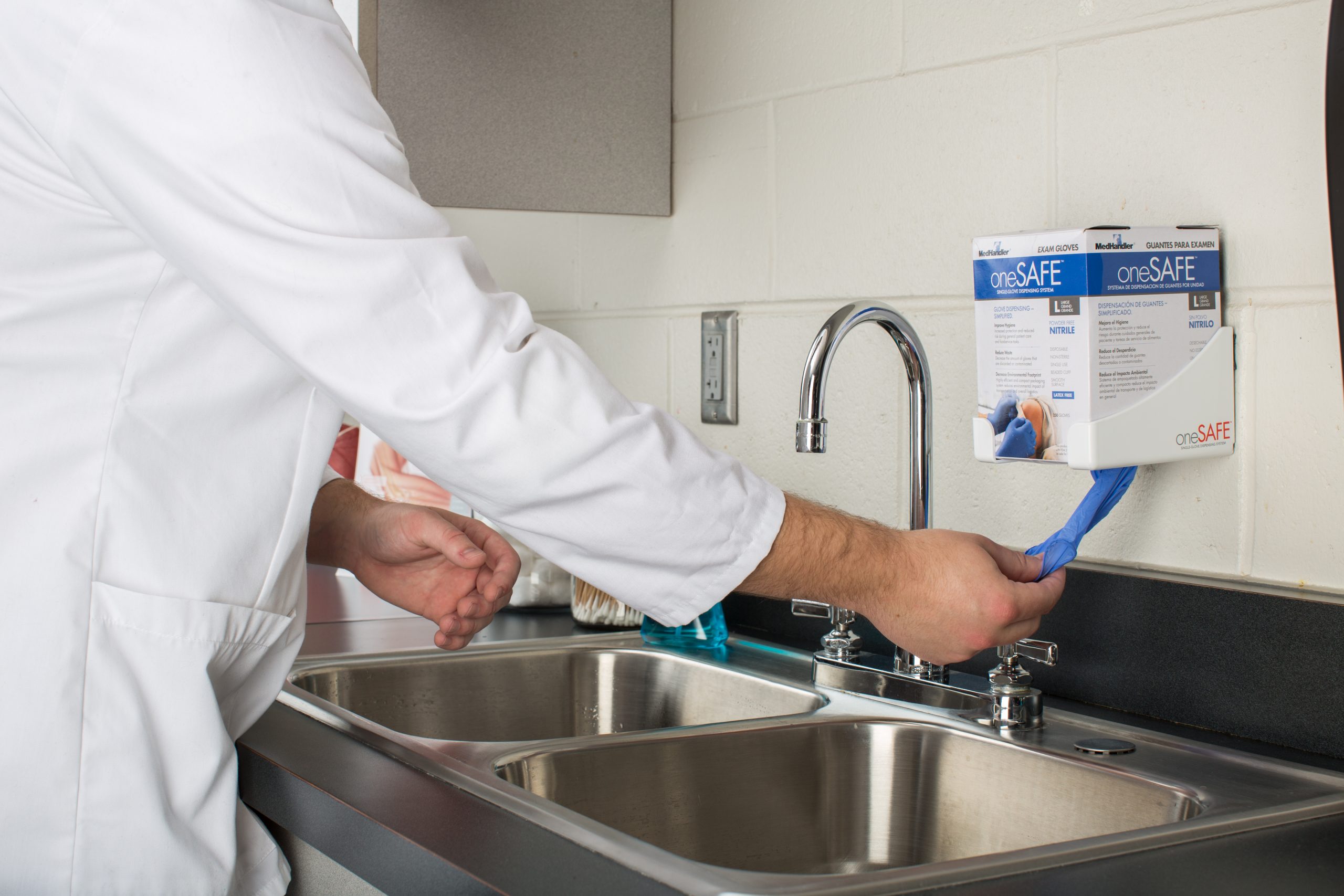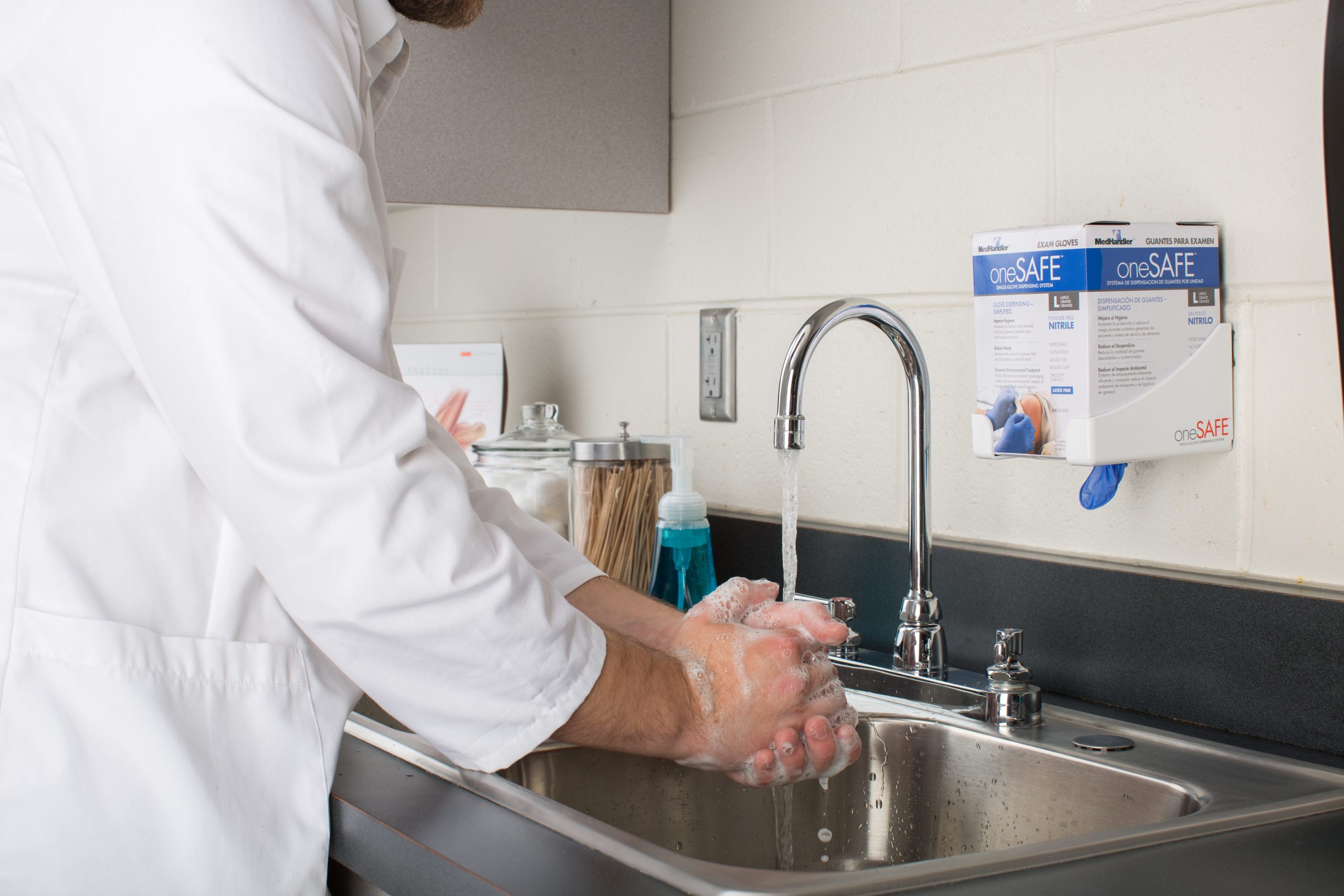Score Big in Food Safety: Amp Up Your Food Safety Education Month
It is mid-August and in just a few short weeks it will be that time of the year again. The time we wait for all year long – not football season…Food Safety Education Month! Fair enough to say, it will be football season, too – but each September in the United States we celebrate National Food Safety Education Month, a time dedicated to highlighting the importance of food safety practices and education. While the month is dedicated to those across the food chain – from home cooks to those who prepare food in foodservice operations, I like to focus most on our foodservice professionals, who prepare billons of meals each year for the public.
If you’ve kept up with our blog at all, you are likely to already know the statistic that approximately 48 million people in the United States become ill due to contaminated food each year in the United States. During each September, National Food Safety Education Month provides us an opportunity to recommit ourselves to enhancing food safety practices, training staff, and reinforcing the vital role everyone plays in preventing foodborne illnesses within our businesses.
Foodservice professionals play an important role in reducing the estimated number of illnesses caused by foodborne illnesses each year. As managers and leaders in the foodservice industry, we must be committed to education and training as key components in ensuring that all staff members understand the importance of food safety. From line cooks to servers, every team member must be aware of best practices, including personal hygiene, cross-contamination prevention, and proper cooking temperatures. By investing in comprehensive food safety education, businesses can minimize risks and ensure a safe dining experience for their customers.
As we approach September, take time now and recommit yourselves and your businesses to food safety and food safety education. Focus on several key areas to enhance your food safety knowledge and practices:
- Personal Hygiene: Proper handwashing and personal hygiene are fundamental to not only preventing the spread of foodborne illnesses, but to general health and wellness. Staff should be trained in the importance of regular handwashing, wearing clean uniforms, and using gloves appropriately when handling food.
- Temperature Control: Maintaining safe temperatures is crucial for preventing the growth of harmful pathogens. All your staff can likely recite the temperature danger zone in their sleep, but make sure they really appreciate the implications of not ensuring that cold food stays cold and hot food, hot.
- Cross-Contamination Prevention: Emphasize the importance of using separate cutting boards, utensils, and storage containers for raw and cooked foods. Regular cleaning and sanitizing of work surfaces, equipment, and utensils are also important considerations in maintaining a safe kitchen.
… National Food Safety Education Month provides us an opportunity to recommit ourselves to enhancing food safety practices, training staff, and reinforcing the vital role everyone plays in preventing food borne illnesses within our businesses.
To maximize the impact of Food Safety Education Month, plan now to implement a food safety certification program in September to make sure all of your key kitchen staff are certified in food safety. The more staff who are certified and truly recognize the importance of food safety helps you to build that food safety culture that we so often discuss. If you’re unable to do a full food safety training class, plan for some interactive training sessions, workshops, or pre-shift meetings to reinforce key concepts and provide learning opportunities.
Embracing food safety education in your business empowers your management and staff to make informed decisions and contribute to a safer food industry. Food Safety Education Month is an excellent opportunity to renew your commitment to food safety and enhance your employees’ knowledge, skills, and commitment to serving safe food. Risk Nothing.
READ MORE POSTS
Greens & Spinach – Please Lettuce Be Safe to Eat
According to the new food nutrition pyramid, we are to eat at a minimum, around 3 cups of dark green vegetables along with other servings of fruits and vegetables each week. That is becoming more difficult as outbreaks such as E. coli 0157:H7 creates bad news for the produce industry, not to mention the victims.
Refrigeration Tips to Keep Your Food Safe
A refrigerator is one of the most important pieces of kitchen equipment for keeping foods safe. In a food service environment, our existence depends on the cooling equipment. The science of refrigeration has evolved from prehistoric times when man found his wild game would last longer packed in the coolness of a cave or packed in snow. Our ancestors harvested ice to keep food cold. Now, if the power goes off, we are instantly reminded of the refrigerator’s importance to our daily life, at home and certainly in a food service facility.
Food Service Hand Hygiene: Basic Handwashing – Part II
Ignoring handwashing as a priority is easy until faced with a crippling lawsuit. Your risk of transmitting a foodborne disease via a food workers hands will never be zero, but the good news is training your crew about handwashing is not complicated. Molding behavior to do it at the right time, using the correct method is the tough part. The Centers for Disease Control & Prevention says the single most effective way to stop the spread of infection is through handwashing. Last month’s article was on the physical equipment to help get better handwashing compliance. The most important part is the practice of the basic handwashing steps:
The Physical Elements of Food Service Hand Hygiene – Part I
September is National Food Safety Education Month and the theme has a rhyme to it – “Keep Hands Clean with Good Hygiene”. Hand washing is one of the public’s best defenses against the spread of both common and rare, even life-threatening, diseases including those caused by food, and against gastrointestinal infections caused by such organisms as the Norovirus, which plagues the cruise ship industry and food service in general.










